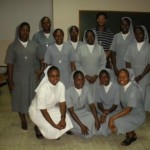WHAT IS AN EMOTION?
‘…a kind of shorthand, an abbreviated way to refer to a package of events and processes…antecedent events, the physiological and motor responses, the memories, thoughts, images, and information processing, and the mobilisation of efforts to cope with the source of emotions. All of these may be implied when someone says, “He looks angry” (Ekaman, 1989).
EMOTIONS AND INDIVIDUAL DIFFERENCES
The way we process emotion is influenced by gender, genetic makeup and some personality traits.
The environmental influence on emotional processing is also strong. That is, we learn to process. That is why, the way children deal with emotions is different from that of adults.
This learning process could be largely determined by early exposure to strong emotional stimuli without accompanying support. Certain way of expressing emotions in a particular context (family) learnt as a child may be difficult in dealing with in another context (school/community) as an adult.
POSITIVE PSYCHOLOGY & AFFECTIVE […]
